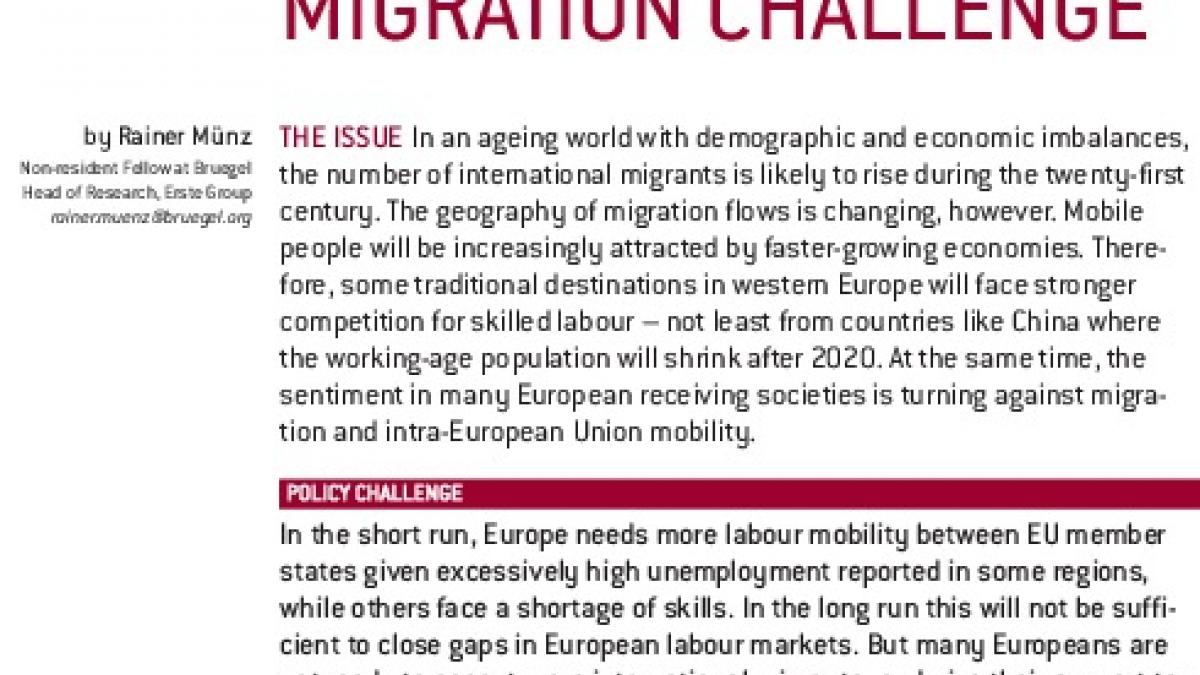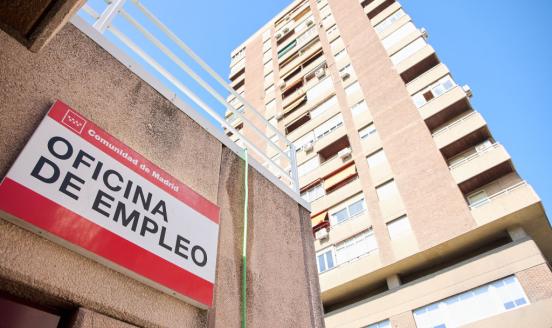The global race for talent: Europe's migration challenge
In an ageing world with demographic and economic imbalances, the number of international migrants is likely to rise during the twenty-first century. T

See also comment '"Give me your tired, your poor, your huddled masses"'
In an ageing world with demographic and economic imbalances, the number of international migrants is likely to rise during the twenty-first century. The geography of migration flows is changing, however. Mobile people will be increasingly attracted by faster-growing economies. Therefore, some traditional destinations in western Europe will face stronger competition for skilled labour – not least from countries like China where the working-age population will shrink after 2020. At the same time, the sentiment in many European receiving societies is turning against migration and intra-European Union mobility.
In the short run, Europe needs more labour mobility between EU member states given excessively high unemployment reported in some regions, while others face a shortage of skills. In the long run this will not be sufficient to close gaps in European labour markets. But many Europeans are not ready to accept more international migrants, and give their support to political parties with restrictive agendas. This creates at least three challenges. First: organising political majorities in favour of more proactive migration policies. Second: making Europe more attractive for mobile people with talent and skills. Third: moving away from unilateral migration policies towards negotiated win-win solutions aiming at reducing the costs of, and enhancing the welfare gains from, migration and remittances

